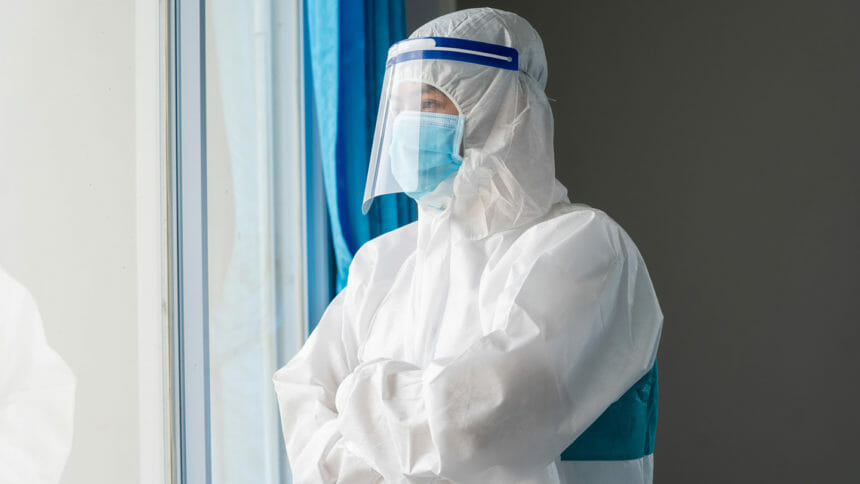
Laws and regulations failed to protect US frontline workers during the COVID-19 pandemic, according to research published Monday in the British Medical Journal. Federal standards and employer preparedness plans should be strengthened to protect long-term care and healthcare workers in the future, the authors said.
COVID-19 disproportionately affected essential, frontline workers whose services were necessary, that is, those who had to show up to work outside of their homes, such as long-term care and healthcare workers, according to the analysis.
A reason for the failure, the authors said, was gaps in laws and regulations that didn’t consider the rapid spread of disease in workplaces and didn’t see frontline workers as needing special attention or protections.
“The consequences of these failures were appalling and led to tens of thousands of deaths in frontline workers,” said lead author David Michaels, PhD, MPH, an epidemiologist and professor at the George Washington University School of Public Health.
Pre-pandemic laws and regulations didn’t always allow for sick essential workers to take time off to recuperate at home, according to Michaels and co-authors Emily A Spieler, JD, professor of the Northeastern University School of Law, and Gregory R Wagner, MD, professor at the Harvard T H Chan School of Public Health.
Some long-term care and other employers only now are subject to updated reporting requirements for injury and illness data this month through the Occupational Safety and Health Administration’s injury tracking application.
The study authors noted that some states have their own Occupational Safety and Health Administration programs. California OSHA, for instance, has a standard to protect workers from airborne illness, but there is no such protection at the federal level, they said.
“The risk of exposure [to COVID-19] was exacerbated by race- and labor-related economic inequality, resulting in disproportionately more of the nation’s Black and Hispanic workers being killed or sickened by the virus,” Michaels added.
According to the report, those two demographics are overrepresented in frontline industries.
The authors concluded that, to increase frontline worker protections, OSHA should beef up its standards, focusing both on preventing workplace exposure to airborne pathogens and on requiring pandemic preparedness plans from employers.
“Both the nation’s and employers’ pandemic preparedness plans should include provisions to ensure the availability and distribution of essential personal protective equipment, as well as vaccines and other health interventions, without regard to the economic capacity of individuals or organizations,” the authors said. “These plans need to be updated regularly to reflect the latest scientific information.”



